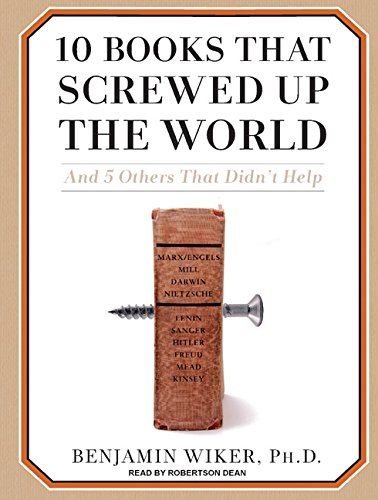-
A Spacetime Tale
J. Benjamin
eBookAfter years spent studying alien life in the seas of Europa, Dr. Kiara Lacroix has become one of Earth’s foremost exobiology experts. Her research brings her to the attention of the Global Space Federation, which has a top-secret mission for her: an advanced alien civilization has been discovered in the depths of an icy planet five light-years from Earth, and Kiara is expected to join the crew making first contact.Kiara has her hesitations, but as usual her scientific curiosity gets the better of her. She and her crew will be using experimental technology which establishes long-distance contact via a dream-reality beamed through a wormhole: the spacetime sequence. It’s even riskier than it sounds.Of course, Kiara’s not the only one with hesitations about the GSF’s actions. And some of those people have the resources—and the access to GSF’s classified mission information—to do something about them.A Spacetime Tale is high-concept hard science fiction at its finest.Cover Art by Jeff Brown
-
10 Books That Screwed Up the World: And 5 Others That Didn't Help
Benjamin Wiker
Hardcover (Regnery Publishing, April 15, 2008)You've heard of the "Great Books"?These are their evil opposites. From Machiavelli's The Prince to Karl Marx's The Communist Manifesto to Alfred Kinsey's Sexual Behavior in the Human Male, these "influential" books have led to war, genocide, totalitarian oppression, family breakdown, and disastrous social experiments. And yet these authors' bad ideas are still popular and pervasive--in fact, they might influence your own thinking without your realizing it. Here with the antidote is Professor Benjamin Wiker. In his scintillating new book, 10 Books That Screwed Up the World (And 5 Others That Didn't Help), he seizes each of these evil books by its malignant heart and exposes it to the light of day. In this witty, learned, and provocative exposé, you'll learn: * Why Machiavelli's The Prince was the inspiration for a long list of tyrannies (Stalin had it on his nightstand)* How Descartes' Discourse on Method "proved" God's existence only by making Him a creation of our own ego* How Hobbes' Leviathan led to the belief that we have a "right" to whatever we want* Why Marx and Engels's Communist Manifesto could win the award for the most malicious book ever written* How Darwin's The Descent of Man proves he intended "survival of the fittest" to be applied to human society* How Nietzsche's Beyond Good and Evil issued the call for a world ruled solely by the "will to power"* How Hitler's Mein Kampf was a kind of "spiritualized Darwinism" that accounts for his genocidal anti-Semitism* How the pansexual paradise described in Margaret Mead's Coming of Age in Samoa turned out to be a creation of her own sexual confusions and aspirations* Why Alfred Kinsey's Sexual Behavior in the Human Male was simply autobiography masquerading as science Witty, shocking, and instructive, 10 Books That Screwed Up the World offers a quick education on the worst ideas in human history--and how we can avoid them in the future.
-
10 Books that Screwed Up the World: And 5 Others That Didn't Help
Benjamin Wiker
eBook (Regnery Publishing, May 6, 2008)You've heard of the "Great Books"? These are their evil opposites. From Machiavelli's The Prince to Karl Marx's The Communist Manifesto to Alfred Kinsey's Sexual Behavior in the Human Male, these "influential" books have led to war, genocide, totalitarian oppression, family breakdown, and disastrous social experiments. And yet these authors' bad ideas are still popular and pervasive--in fact, they might influence your own thinking without your realizing it. Here with the antidote is Professor Benjamin Wiker. In his scintillating new book, 10 Books That Screwed Up the World (And 5 Others That Didn't Help), he seizes each of these evil books by its malignant heart and exposes it to the light of day.
-
Benjamin Banneker, the Negro Mathematician and Astronomer
Benjamin Banneker
Paperback (Independently published, March 30, 2017)Benjamin Banneker (November 9, 1731 – October 9, 1806) was a free African American almanac author, surveyor, naturalist and farmer. Born in Baltimore County, Maryland, to a free African American woman and a former slave, Banneker had little formal education and was largely self-taught. He is known for being part of a group led by Major Andrew Ellicott that surveyed the borders of the original District of Columbia, the federal capital district of the United States. Banneker's knowledge of astronomy helped him author a commercially successful series of almanacs. He corresponded with Thomas Jefferson, drafter of the United States Declaration of Independence, on the topics of slavery and racial equality. Abolitionists and advocates of racial equality promoted and praised his works. Although a fire on the day of Banneker's funeral destroyed many of his papers and belongings, one of his journals and several of his remaining artifacts are presently available for public viewing. Parks, schools, streets and other tributes have commemorated Banneker throughout the years since he lived. However, many accounts of his life exaggerate or falsely attribute his works.
-
Thirteen Gold Monkeys
Benjamin Beck
eBook (Outskirts Press, Inc., April 9, 2013)The Fight To Save An Endangered SpeciesA riveting story of idyllic life and unspeakable death in a tropical forest; human strengths and frailties; evil, crime, love, and loyalty; and the drive of remarkable and adorable monkeys to survive.
-
Thirteen Gold Monkeys
Benjamin Beck
Paperback (Outskirts Press, April 3, 2013)A story of hope, love, and unspeakable death in a disappearing Brazilian rainforest. A team of dogged conservationists tries to save a beautiful monkey species, the golden lion tamarin, from certain extinction by reinforcing their numbers with tamarins born in zoos. Will these immigrants learn to find enough to eat, find secure places to sleep, avoid predators, and survive attacks by wild tamarins? Will they find mates and make babies? The technique, known as reintroduction, is new, and the conservationists struggle to find the best method. Can they train the tamarins in zoos to meet the challenges of the wild? Once the monkeys are released in the forest, should the people give them food, shoo away predators, rescue them if they get lost, and treat them if they are injured? Or should they be hands-off, letting the monkeys fend for themselves and become wild as quickly as possible? Beck describes the reintroduction of the first 13 tamarins, capturing their fierce determination to survive, their loves and conflicts, their nurturant families, adorable babies, hidden language, sometimes hilarious attempts to solve the problems of adapting, and the agonizing deaths of those who don't make it. He describes the power and beauty of the rainforest, and the loves, loyalties, conflicts, and sometimes hilarious bumbling by their human caretakers. Challenging their better-known bosses, two women, a zookeeper and a Brazilian field assistant, discover the right way to reintroduce the monkeys. But a well-known Rio citizen almost destroys the program in a callous act of vanity. The story is vivid and authentic; Beck was there and has studied animal thinking and monkey and ape conservation for more than 40 years.
-
10 Books That Screwed Up the World: And 5 Others That Didn't Help
Benjamin Wiker
MP3 CD (Tantor Audio, Sept. 8, 2008)You've heard of the "Great Books"?These are their evil opposites. From Machiavelli's The Prince to Karl Marx's Communist Manifesto to Alfred Kinsey's Sexual Behavior in the Human Male, these "influential" books have led to war, genocide, totalitarian oppression, family breakdown, and disastrous social experiments. And yet these authors' bad ideas are still popular and pervasive-in fact, they might influence your own thinking without your realizing it. Here with the antidote is Professor Benjamin Wiker. In his scintillating new book, 10 Books That Screwed Up the World: And 5 Others That Didn't Help, he seizes each of these evil books by its malignant heart and exposes it to the light of day. In this witty, learned, and provocative expose, you'll learn:-Why Machiavelli's The Prince was the inspiration for a long list of tyrannies (Stalin had it on his nightstand)-How Descartes's Discourse on Method "proved" God's existence only by making Him a creation of our own ego-How Hobbes's Leviathan led to the belief that we have a "right" to whatever we want-Why Marx and Engels's Communist Manifesto could win the award for the most malicious book ever written-How Darwin's Descent of Man proves he intended "survival of the fittest" to be applied to human society-How Nietzsche's Beyond Good and Evil issued the call for a world ruled solely by the "will to power"-How Hitler's Mein Kampf was a kind of "spiritualized Darwinism" that accounts for his genocidal anti-Semitism-How the pansexual paradise described in Margaret Mead's Coming of Age in Samoa turned out to be a creation of her own sexual confusions and aspirations-Why Alfred Kinsey's Sexual Behavior in the Human Male was simply autobiography masquerading as scienceWitty, shocking, and instructive, 10 Books That Screwed Up the World offers a quick education on the worst ideas in human history-and how we can avoid them in the future.
-
A Spacetime Tale
J. Benjamin
Paperback (J. Benjamin, Nov. 13, 2019)After years spent studying alien life in the seas of Europa, Dr. Kiara Lacroix has become one of Earth’s foremost exobiology experts. Her research brings her to the attention of the Global Space Federation, which has a top-secret mission for her: an advanced alien civilization has been discovered in the depths of an icy planet five light-years from Earth, and Kiara is expected to join the crew making first contact.Kiara has her hesitations, but as usual her scientific curiosity gets the better of her. She and her crew will be using experimental technology which establishes long-distance contact via a dream-reality beamed through a wormhole: the spacetime sequence. It’s even riskier than it sounds.Of course, Kiara’s not the only one with hesitations about the GSF’s actions. And some of those people have the resources—and the access to GSF’s classified mission information—to do something about them.A Spacetime Tale is high-concept hard science fiction at its finest.Cover art by Jeff Brown
-
Young Harriet Tubman - Pbk
Benjamin
Paperback (Troll Communications, Jan. 31, 1997)A simple biography of the Black woman who helped over 300 slaves escape through the Underground Railroad and was never caught herself L
L
-
Young Helen Keller: Woman of Courage
Benjamin
Paperback (Troll Communications, Dec. 1, 1997)A simple biography of the blind and deaf woman who spent her life writing and helping others with similar disabilities L
L
-
Young Pocahontas - Pbk
Benjamin
Paperback (Troll Communications, Dec. 1, 1996)A simple biography of the seventeenth-century Indian princess who befriended Captain John Smith and the English settlers of Jamestown LB
LB
-
Benjamin Banneker, the Negro Mathematician and Astronomer
Benjamin Banneker
eBookBenjamin Banneker (November 9, 1731 – October 9, 1806) was a free African American almanac author, surveyor, naturalist and farmer. Born in Baltimore County, Maryland, to a free African American woman and a former slave, Banneker had little formal education and was largely self-taught. He is known for being part of a group led by Major Andrew Ellicott that surveyed the borders of the original District of Columbia, the federal capital district of the United States.Banneker's knowledge of astronomy helped him author a commercially successful series of almanacs. He corresponded with Thomas Jefferson, drafter of the United States Declaration of Independence, on the topics of slavery and racial equality. Abolitionists and advocates of racial equality promoted and praised his works.Although a fire on the day of Banneker's funeral destroyed many of his papers and belongings, one of his journals and several of his remaining artifacts are presently available for public viewing. Parks, schools, streets and other tributes have commemorated Banneker throughout the years since he lived. However, many accounts of his life exaggerate or falsely attribute his works.